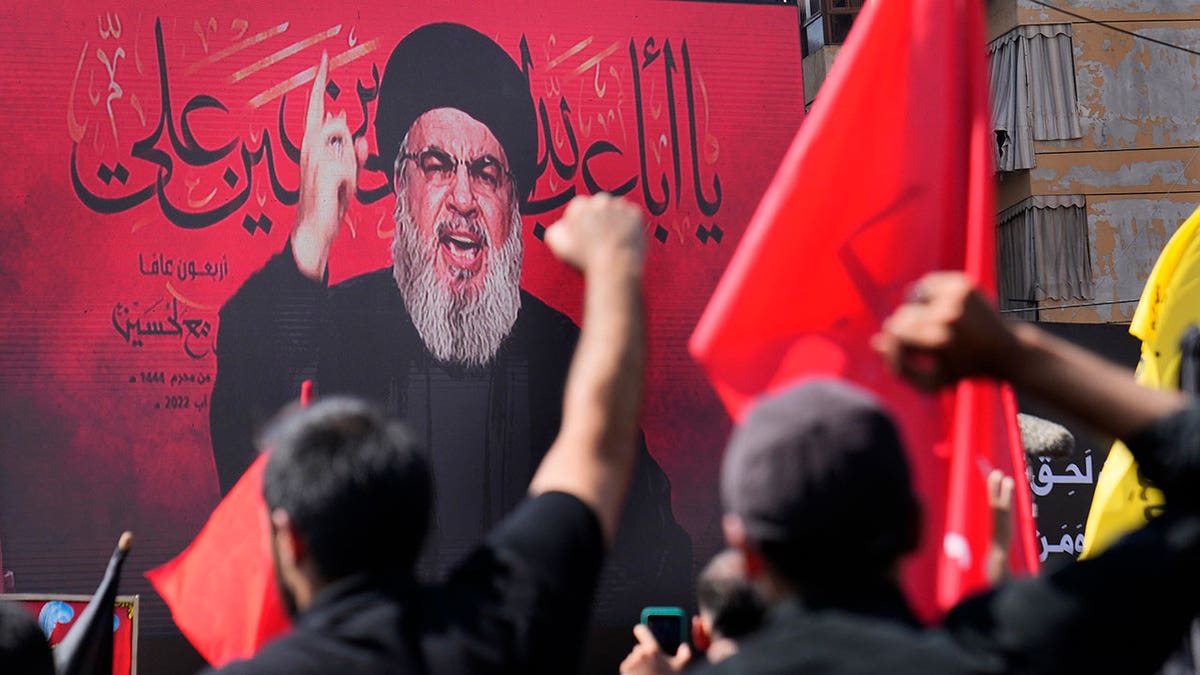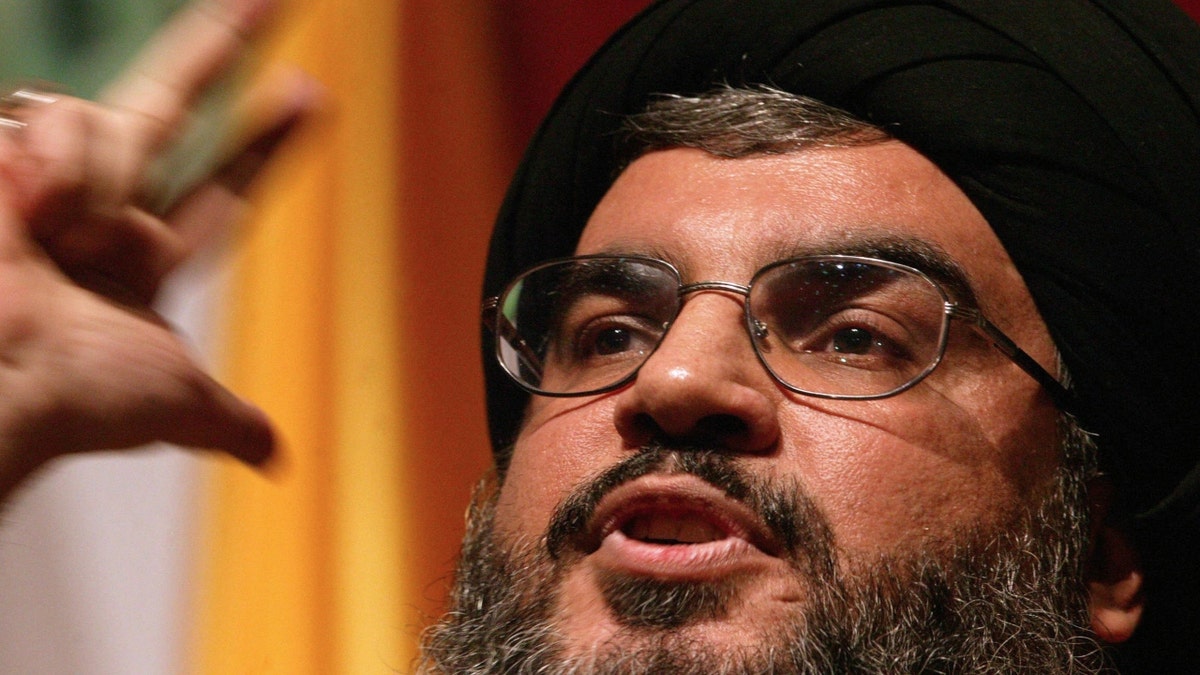Fox News Flash top headlines for August 17
Fox News Flash top headlines are here. Check out what's clicking on Foxnews.com.
Iranian threats and Israel's interim government could prove to be an Achilles' heel amid U.S.-mediated negotiations between the Jewish state and Lebanon over a disputed maritime region in the Mediterranean Sea, experts say.
Israel and Lebanon have been involved in negotiations since 2020 over a disputed maritime zone in the eastern Mediterranean, with both countries claiming ownership of the natural gas-rich, 300-square-mile stretch.
"America may be trying to take advantage of the fact that Israel has a weak interim government to try to pressure them into making diplomatic concessions and then show Iran that [the U.S.] is trying to do something … to boost the Iranian nuclear deal," stated Eugene Kontorovich, professor of law at George Mason University.
Observers worry that Israel's interim government led by Yair Lapid cannot give the maritime dispute with Lebanon the necessary attention, given the makeup of the government. Israel has elections in November.
HEZBOLLAH THREATENS TO 'SEVER' THE HAND OF ISRAEL IF IT ATTEMPTS TO TAP DISPUTED OFFSHORE GAS

Hezbollah leader Sheik Hassan Nasrallah speaks via video link as his supporters raise their hands during the Shiite holy day of Ashoura in the southern suburb of Beirut, Lebanon, Aug. 9, 2022. (AP Photo/Hussein Malla)
"Of course, this paves the way for this Biden administration to try and push forward," Brig. Gen. Amir Avivi, CEO of the Israel Defense and Security Forum (ISDF), told Fox News Digital. "But I think the administration will find out that every time they consider something else to the Iranians, the Iranians will have new demands, and they're not going to be able to appease the Iranians."
The U.S. has attempted to mediate the negotiations through Amos Hochstein, senior advisor for energy security, with Lebanon currently awaiting a response from Israel to settle matters.
ISRAEL, PALESTINIAN MILITANTS AGREE TO CEASE-FIRE IN GAZA BROKERED BY EGYPT
"I think that the Lebanese understand that they need to move forward with the issue of energy and gas and try to stabilize their collapsing economy," Avivi said.

Sheikh Hassan Nasrallah, head of the Lebanese Shiite Muslim movement Hezbollah, delivers a speech to mark the anniversary of assassination by Israel of its secretary general Sheikh Abbas Musawi, Feb. 16, 2006, in Beirut. (Haitham Mussawi/AFP via Getty Images)
"On the other hand, there is another force, which is Iran, that is using Hezbollah as a front militia in the north of Israel and trying to undermine this, trying to threaten Israel, even in areas, by the way, that are not at all in these fields like the Karish Gas Reserve."
Most recently, the leader of Hezbollah in Lebanon, Hassan Nasrallah, sent Israel a warning over potentially tapping into offshore gas reserves in the disputed waters. Nasrallah made clear Hezbollah was prepared to escalate matters if Israel were to ignore Lebanese demands.
Kontorovich told Fox News Digital that Israel is being pressured by the threat of violence on Hezbollah's end into giving up the disputed land.
However, Avivi believes Israel is "preparing for any option," saying Israel will retaliate if Hezbollah threatens to attack Israel if Israel were to extract gas from Karish, an area Avivi says is not in dispute.
"I know very well the level of readiness at the (Israel Defense Forces) and, at any moment needed, they will be able to handle this threat," Avivi noted.
AFTER ISRAEL HITS TERROR GROUP, UN SECURITY COUNCIL MEETS AS SOME MEMBERS REBUKE THE JEWISH STATE
Lebanon is in desperate need of an agreement over the disputed area, given the country is suffering the worst economic crisis in its history, and hopes to exploit the offshore gas reserves as a means of alleviating the financial strain.
"Israel is not going to give hundreds of billions of dollars of their natural resources. There is a narrow area that is in dispute. Israel is willing to divide this area, whether it's 50/50 or 55/45 and some compensation," Avivi said.
He also believes if the Biden administration were to be successful in pushing the Iran nuclear deal via the Israel-Lebanon negotiations that the consequences could be detrimental, with the entire Middle East moving toward having nuclear capabilities.
"This will create a globe that is completely not secured because the Middle East is very, very unstable," Avivi said.

Lebanon's caretaker Energy Minister Walid Fayad gestures as he meets with U.S. Senior Advisor for Energy Security Amos Hochstein in Beirut, Lebanon, June 13, 2022. (REUTERS/Mohamed Azakir)
CLICK HERE TO GET THE FOX NEWS APP
Avivi also said oil and supply chain resources would collapse as a result, taking into account the United States' recent energy and supply crisis.
Hochstein met with top Lebanese officials last month and was later reported to have visited Israel. He is expected to return to Beirut in the coming weeks with Israeli responses to Lebanese requests.
Meanwhile, tensions continue to rise in the area with Israel shooting down three unarmed Hezbollah drones flying over the Karish field. Hezbollah later released footage showing Israeli ships in the area.
The Associated Press contributed to this report.










































